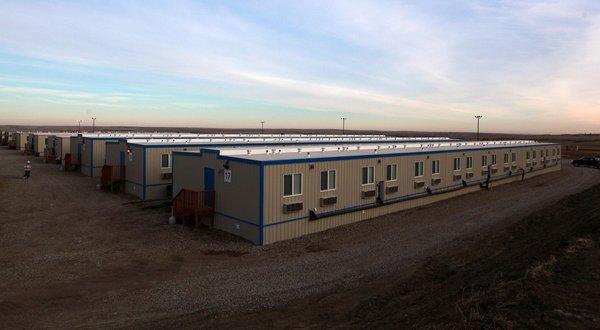Shutting Down Man Camps Is The Very Definition Of "Picking Winners And Losers"

If you observe North Dakota politics long enough you’ll eventually hear someone make this remark: “The government can’t pick winners and losers in the marketplace.”
It’s a reference, and one most in the state generally agree with, to the idea that the government should be neutral in the market. It should enforce the laws and regulations, and that’s it. The success or failure of any given industry or business should depend on the choices made by citizens in the marketplace.
But in Williston the City Commission seems very much intent on forcing a specific group of businesses to be losers amid anxieties over low oil prices. Developers operating in Williston – people who built apartment buildings and single family homes and hotels – want the city to close down so-called “man camps” which cater to the temporary housing needs of oil workers.
Their reason? They don’t want the competition. And that’s not my subjective characterization of their position. That’s the argument they’re making publicly:
“This is not what the investment community expected,” John Sessions, one of the developers of the Eagle Crest Apartments in Williston, said during a recent commission meeting.. “In time, fragile ownerships will get tired of this relationship. You might see fire sales of projects. Maintenance will suffer.”
[mks_pullquote align=”right” width=”300″ size=”24″ bg_color=”#ffffff” txt_color=”#000000″]Klug seems to think boom-era demand for housing in Williston can be the new normal. That’s a badly flawed point of view which will soon run aground against the hard rocks of reality regardless of whether or not the city closes the man camps.[/mks_pullquote]
Terry Metzler with Granite Peak Development “said investors had the confidence to support long-term developments because they understood Williston’s intent was that crew camps would go away when permanent development caught up,” reported Amy Dalrymple who covered the November 10 meeting.
If Williston’s city leadership made a promise of the sort Metzler is describing they shouldn’t have. And even if they did, their mistake doesn’t justify shutting down the man camps in city limits.
If the people who built apartments and hotels and single family homes overplayed their hands, if they built too fast or put themselves in a position where demand for their housing can’t support their financing, then that’s too bad. Nobody wanted that. In fact, this exact situation is why I have been critical of state incentives for development. I felt that the state pouring subsidies for housing development into what was already a white-hot market for it would make it difficult for developers to find the edge of that market.
It looks like was probably right.
But, again, the temporary housing operators shouldn’t have to pay for the investment and/or public policy mistakes of others. The oil industry, and the man camp companies, both say there is still a need for temporary housing. “For us, it could be detrimental to our workforce to close the camps,” Orlando Romero, director of real estate for Nabors Drilling, told the City Commission. A spokesman for Target Logistics pointed out that their camp in Williston is still 70 percent full.
Given that the oil industry is the whole reason there was such a spike in demand for housing in oil patch communities like Williston in the first place, it might behoove Williston’s city leaders to listen.
What’s more, the justification for closing the man camps is silly. “Mayor [Howard] Klug, who has previously said he doesn’t want Williston to be a ‘temporary town,’ pointed out during Tuesday’s meeting that there are crew camps in Williams County that continue to operate.”
Klug seems to think boom-era demand for housing in Williston can be the new normal. That’s a badly flawed point of view which will soon run aground against the hard rocks of reality regardless of whether or not the city closes the man camps.
The commission voted 3-2 last week to approve the first reading of an ordinance to close the man camps next year. Let’s hope that between that vote and the next one, someone on the commission sees the light.




